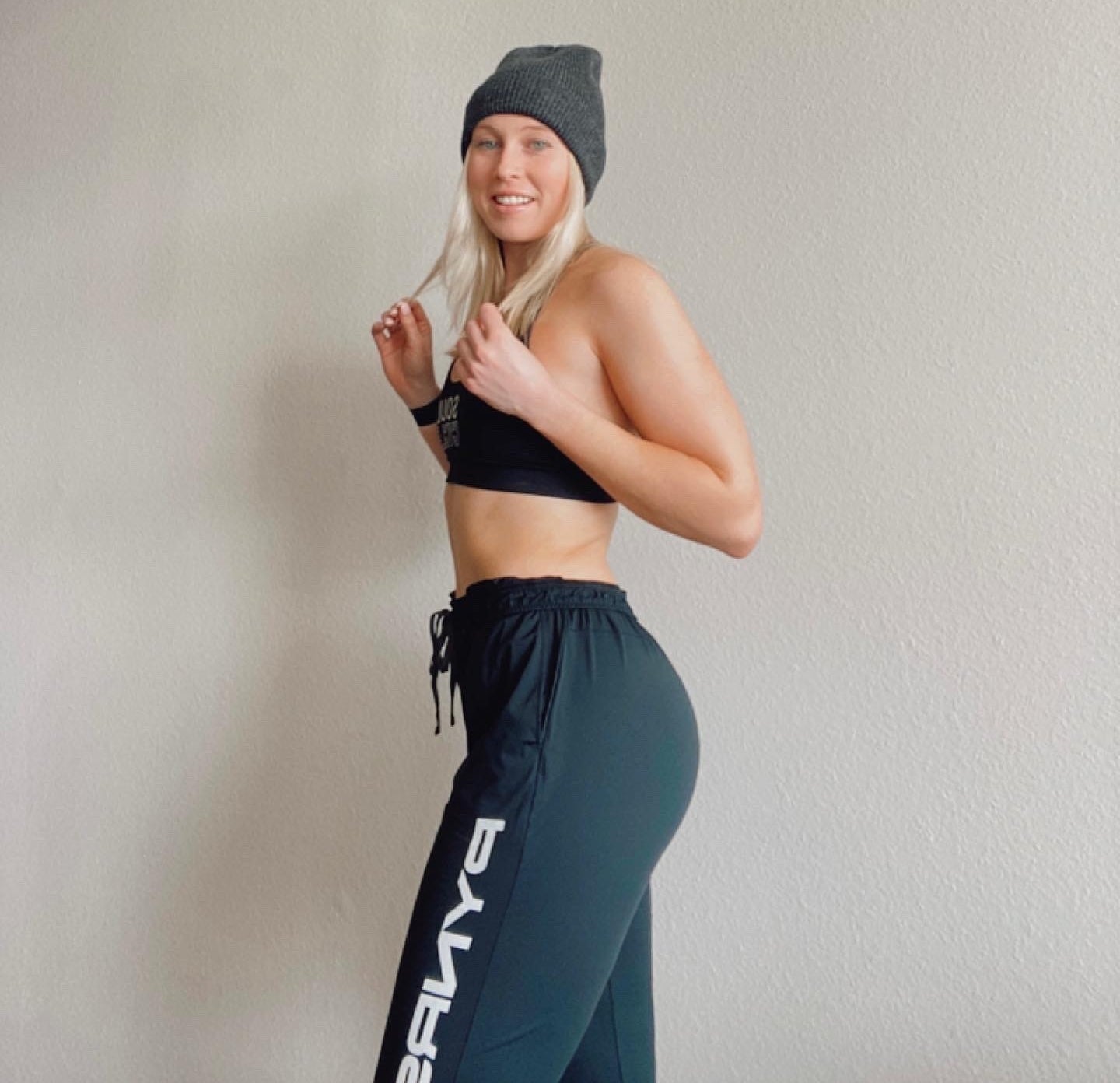Meet Kate, a Penn State student studying biobehavioral health. She's amassed nearly 200,000 followers and 12.1 million likes on TikTok (@kateao4), where she posts videos about everything from pheromones to the art of seduction.

However, almost every time she uploads a new video — no matter what the topic is — she receives at least one comment along these lines:
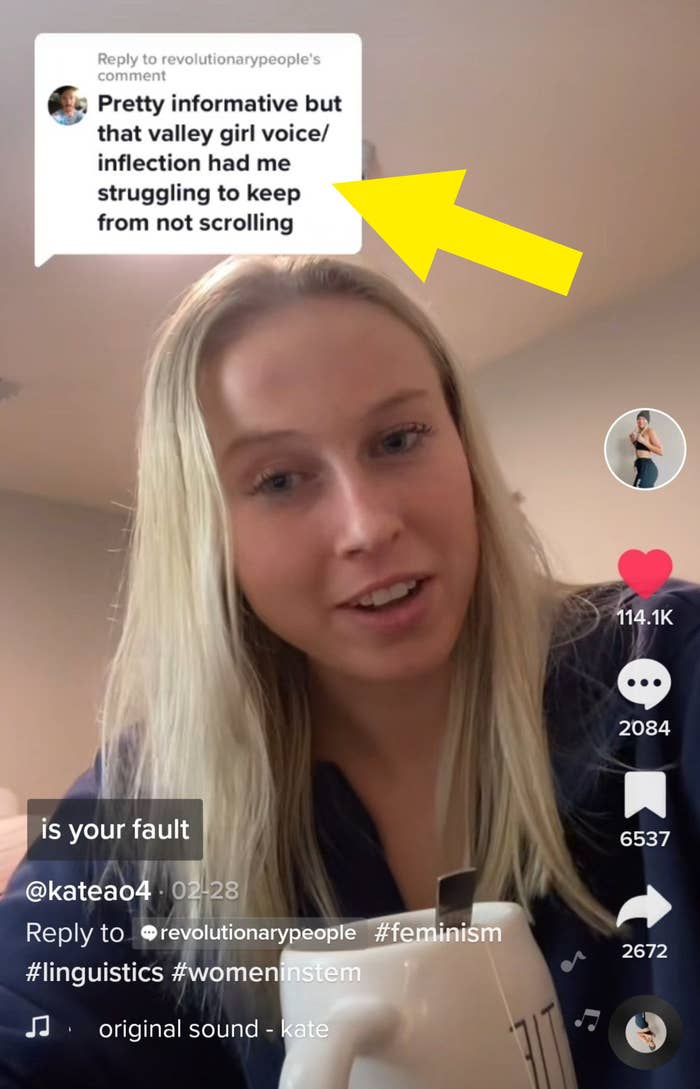
"For as long as I've been a content creator, people have been commenting on my voice, and it's always men," Kate, a Pennsylvania native, told BuzzFeed. In fact, the controversy around her voice began when she posted a video about her professor baselessly accusing her of plagiarism. Though she had an A in his class, Kate explained, "He didn't believe I was able to write a well-written essay based on whatever 'airhead blonde' stereotype he had of me." In response, she received numerous comments from men claiming they also wouldn't "believe" she was smart or "take [her] seriously" due to her Valley Girl speech, while many women defended her.
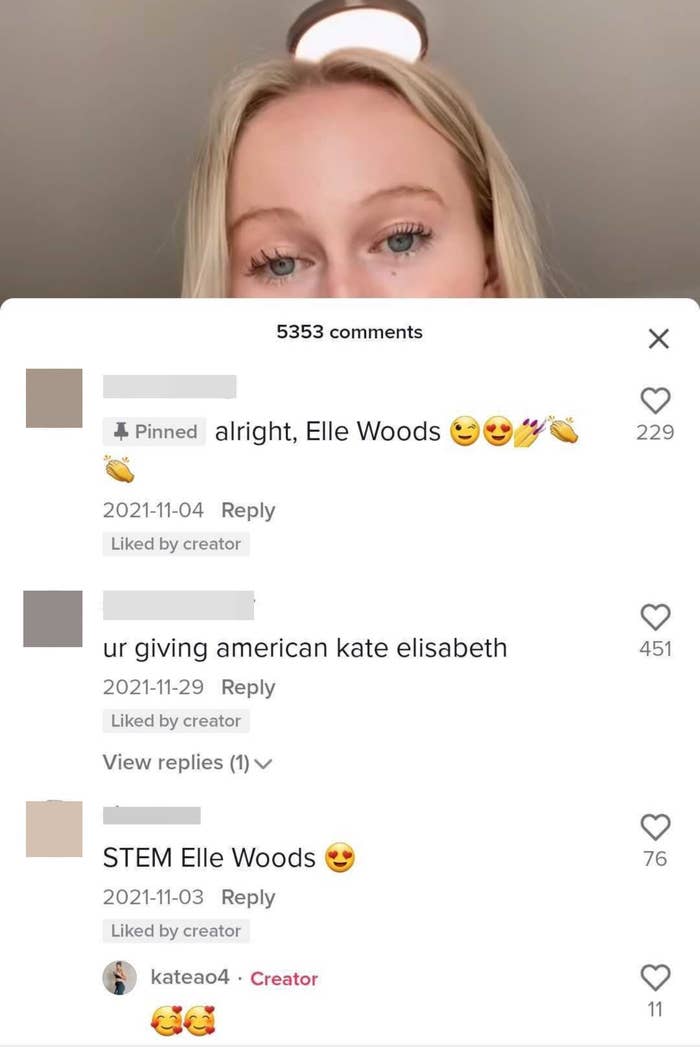
To address the comments, Kate posed the question: Why are people — in her experience, particularly older men — so bothered by her voice? Her theory: Because the workforce was male-dominated, hypermasculine speech patterns became standardized as "professional speech." As women become more prevalent in the public sphere, their speech patterns are becoming normalized within professional speech, representing the decline of older, male-dominated forms of communication. She sums up, "[Men are] so lost in the sauce of sexism that they don't even realize the reason they're upset about Valley Girl speech isn't because it's actually annoying. It's because it's associated with young women and femininity, and anything that's not a patriarchal ideology is going to seem stupid to you."
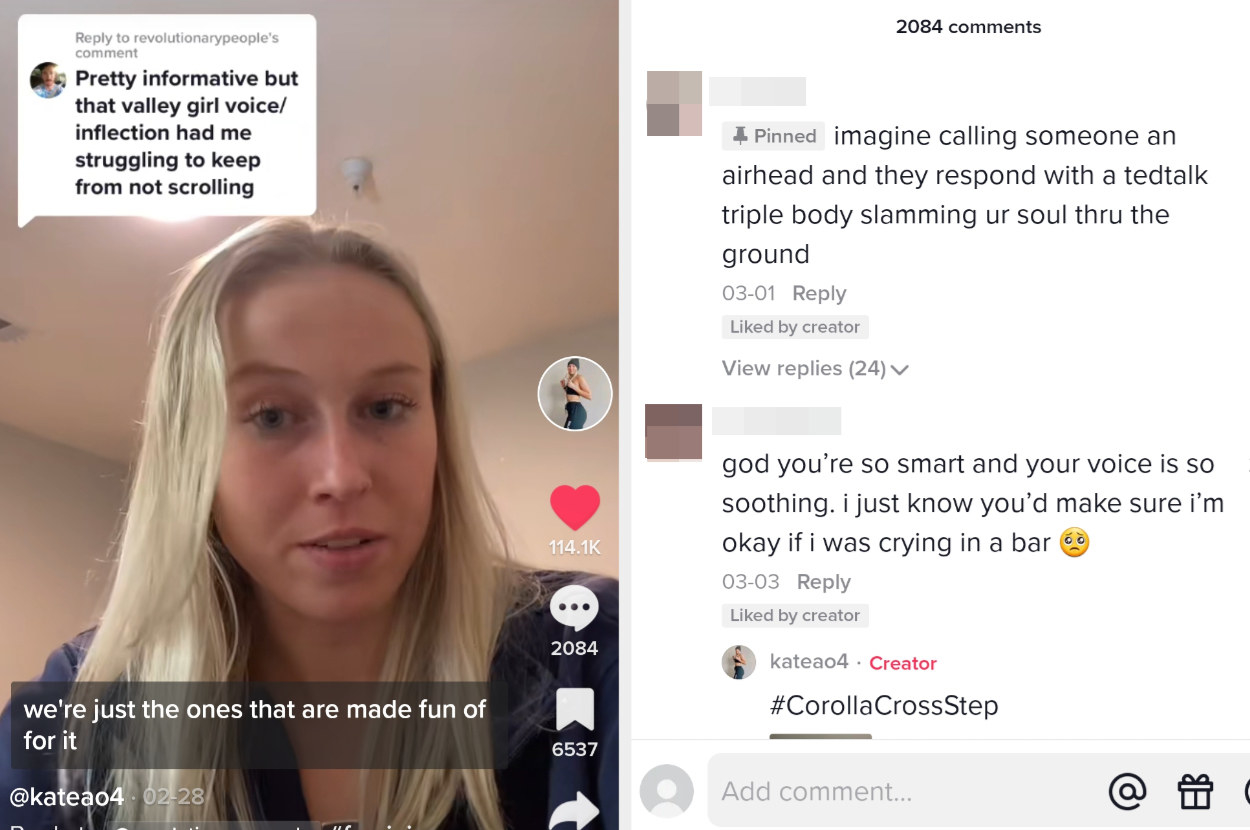
Viewed nearly half a million times, Kate's video received more than 2,000 comments, with many people praising her explanation (and voice) and thanking her for the breakdown. So to learn more and dive deeper into the world of linguistics, BuzzFeed spoke with Meghan Armstrong-Abrami, an associate professor of Spanish Linguistics at UMass Amherst.

While often associated with Valley Girl speech, uptalk has multiple definitions and functions within linguistics, Dr. Armstrong-Abrami explained. One such definition, by Paul Warren, defines it as "a marked rising intonation pattern found at the end of intonation units, and which serves primarily to check comprehension or to seek feedback." However, uptalk conveys a variety of intentions in communication.
Intentions of uptalk — also known as high rising terminals or rising declaratives — include checking, conversation maintenance, establishing common ground, feedback elicitation, hearer involvement, implying questions, reducing social distance, signaling new information, friendliness, solidarity, etc.
Also important to note: Uptalk is not produced in a vacuum. Armstrong-Abrami elaborated, "There is the actual content of the message, the physical gestures (like facial expressions and body movements) that the speaker is producing when the uptalk is uttered, the discourse context of what conversational participants have already said, etc. These also contribute to the way the message is conveyed."
Beyond speech patterns, the Valley Girl, herself, is generally associated with a stereotypical persona — one usually synonymous with "ditzy" or perhaps Cher Horowitz from Clueless. "This definitely makes it obvious that certain speech patterns are tied very closely to the persona of a Valley Girl," Armstrong-Abrami noted.
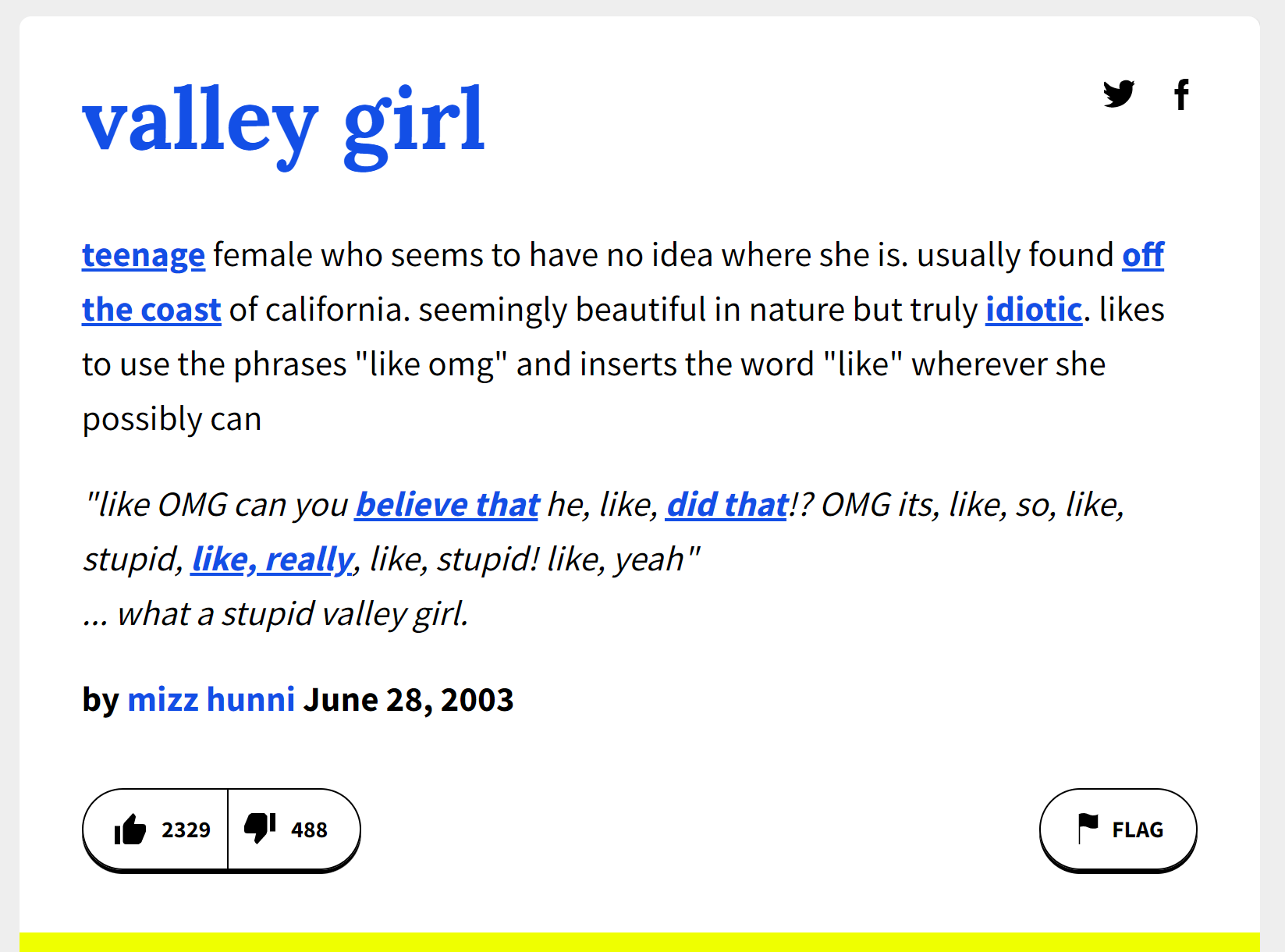
Nevertheless, uptalk is not a characteristic unique to Valley Girl speech, let alone American English, as Kate indicates in her video. It's actually been documented in at least 14 types of English (including Pacific, Mexican, South African, and Indian Englishes) and 11 non-English languages (including German, Spanish, Japanese, and Arabic). Thanks to cross-linguistic comparisons, it's clear that the social perception of uptalk depends on the particular speech community in question.
For example, Armstrong-Abrami shared that one case found that men who speak Peninsular Spanish (Spanish spoken in Spain) produced significantly more rises than women.
"To my knowledge, Spanish men do not face any social stigma or language policing for this," she added. On the other hand, uptalk does carry social meaning in Mexican Spanish, as it's often associated with fresa-style speech.
When it comes to gender, Armstrong-Abrami stated that a 2015 study — with participants from Southern California and Massachusetts — found "no significant differences in terms of how frequently men used rises when compared to women." In fact, as far back as the 1970s, American English speakers have been using rises to have the effect of, "Are you listening?" Despite this, uptalk is generally associated with women and younger speakers in the US.
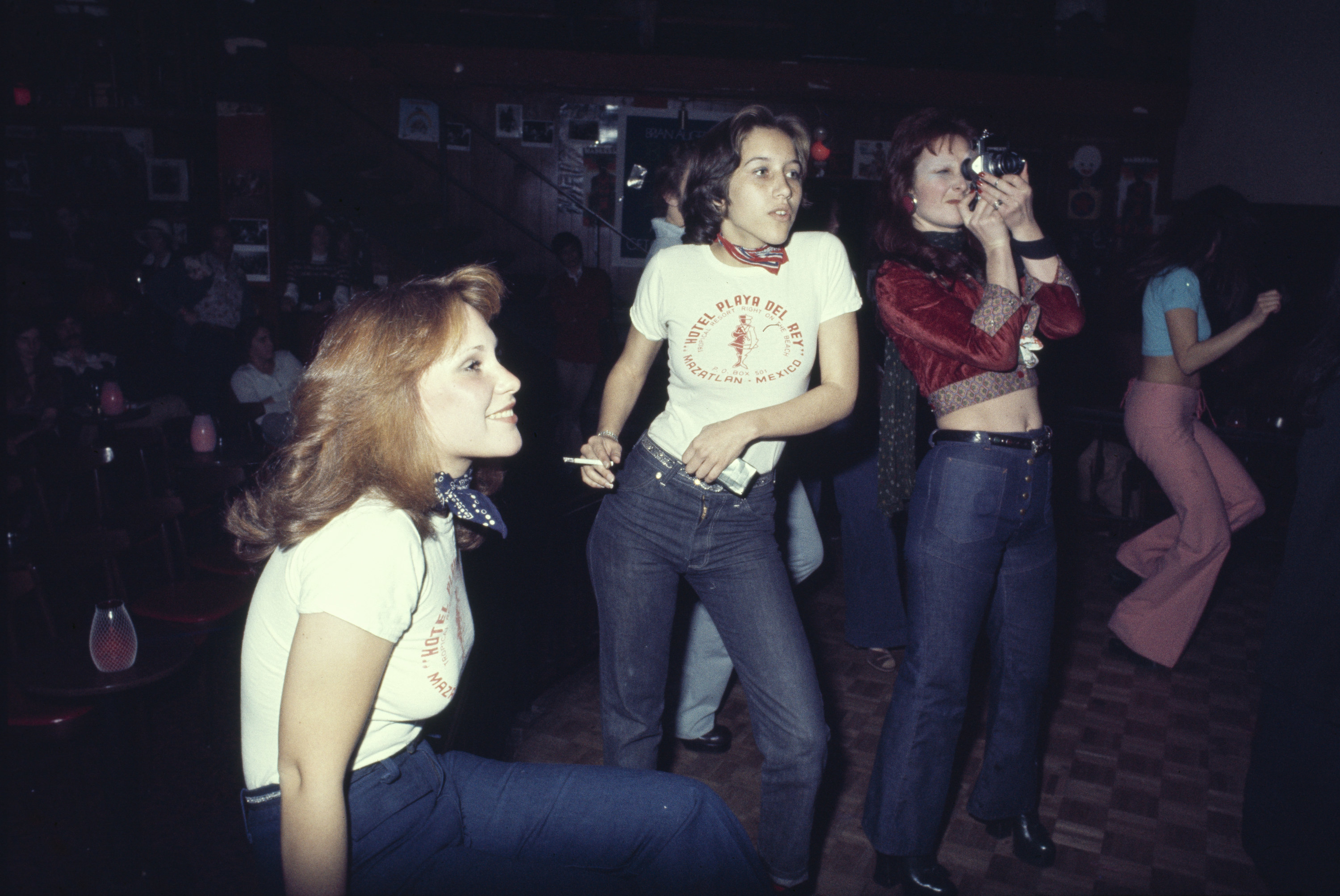
"One very important thing to bear in mind here," Armstrong-Abrami remarked, "is that in the field of sociolinguistics, it is widely accepted that women and young women are often the leaders of language change. So if there is something 'new' going on in the language, it's not surprising to find women doing it. However, it seems to be the case that in the process of leading language change, women pay a price in that their speech is overly policed and, in some cases, even pathologized."
So why do people use uptalk? Well, the reason is probably not that simple, Armstrong-Abrami said. (For starters, it emerged in several languages around the same time.) As to Kate's theory that women use uptalk because they're often interrupted, she commented, "It's certainly a reason women could use it if we consider the 'holding the floor' use."
"In that case, they would be implicating that they are not done yet, so it makes sense that women might feel the need to hold the floor if they are used to being interrupted. At the same time, uptalk is pretty clearly used for a variety of other intentions," she continued.
Age and gender also play into the intentions for which speakers use uptalk. While one study found no gender disparity in uptalk to make statements, it did find that women use uptalk twice as often as men to hold the floor. As Kate notes, male politicians often use uptalk but aren't seen as doing so to hold the floor. For example, an analysis of former president George W. Bush's speeches found that his pitch contours would be "called 'uptalk' if produced by a young woman from the San Fernando Valley." Another analysis of former President Barack Obama's speeches found that he used high termination to emphasize information and capture attention. "I have to wonder if that rise was produced by a woman it'd have the same interpretation," Armstrong-Abrami added.

More broadly, in terms of gendered speech patterns and professionalism, she observed, "I think a lot of the aspects that women's speech has been criticized for are related to intentions that show empathy — checking in with the listener, establishing common ground, not committing fully to a statement because you are aware there might be more information you need. This hearer-orientedness may indeed be less common in the speech of men, and maybe there exists an idea that empathy is not appropriate in a professional environment, but that seems like a societal problem to me."
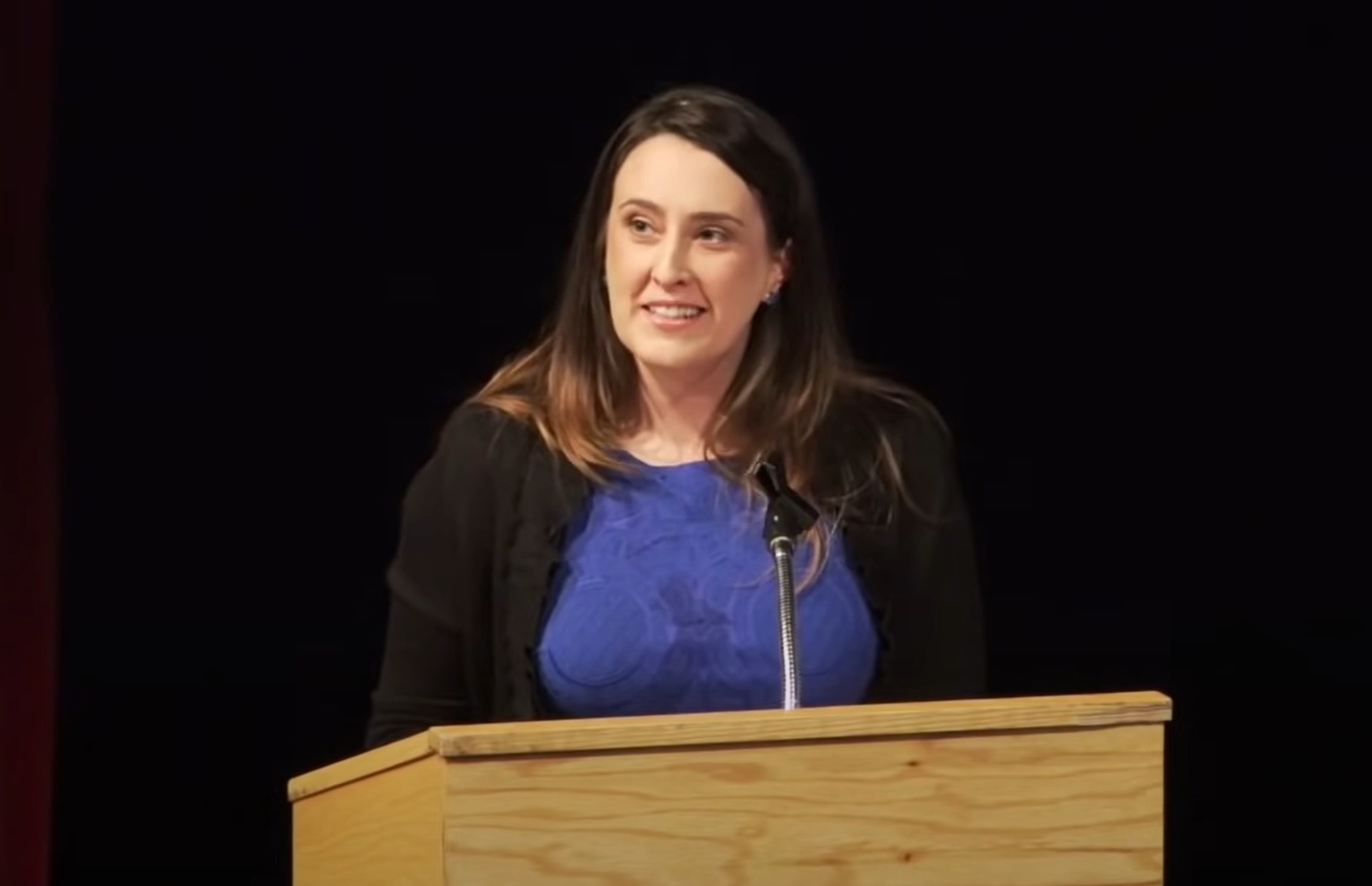
Ultimately, Armstrong-Abrami concluded, "No matter what the phenomenon is — whether it's tag questions in the '70s, uptalk, vocal fry, or the use of 'just' in the past years — women's speech is always viewed negatively. Criticizing the speech of certain groups is still somehow socially acceptable and is a way of passing judgment on those groups. It's the norm that groups that are deemed undesirable by society are judged for their speech patterns, and individuals that deem themselves as authorities (usually self-proclaimed) on speech are able to openly criticize the linguistic features of these groups. As long as our society continues to devalue women (among other groups), we will continue to see women’s speech patterns criticized, policed, and pathologized."
As for Kate, in spite of the criticism she receives for her voice, she makes no effort to flatten her speech patterns. "That would be counterproductive in my opinion," she said. "Feminism doesn't mean conforming to 'less feminine' behavior but forcing men to get used to a more female-dominated world. Women should be able to talk the way they normally talk, and men can get over it."
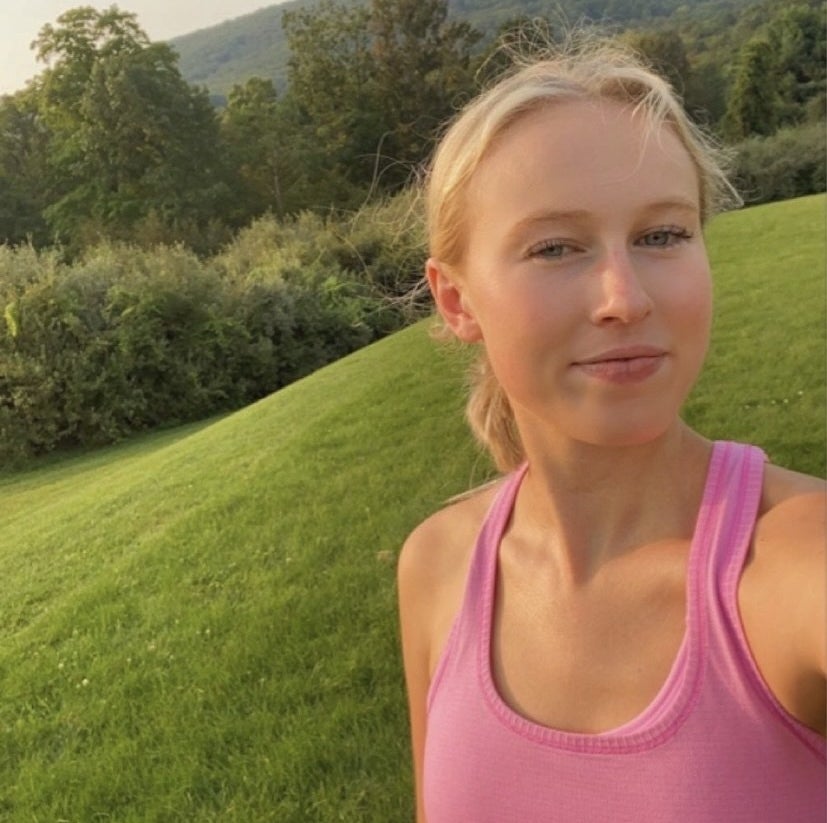
That's why Kate decided to address the comment and make the video in the first place: To combat the perception that things associated with women are less intelligent or silly and to empower women. "It's a result of patriarchy," she said. "I'm tired of seeing women be made fun of for the way that they talk. I hope viewers take away that their Valley Girl voice in no way takes away from the power of their statements. We don't have to keep shrinking ourselves to make men more comfortable. Instead of conforming, it's time that women started punching back."
